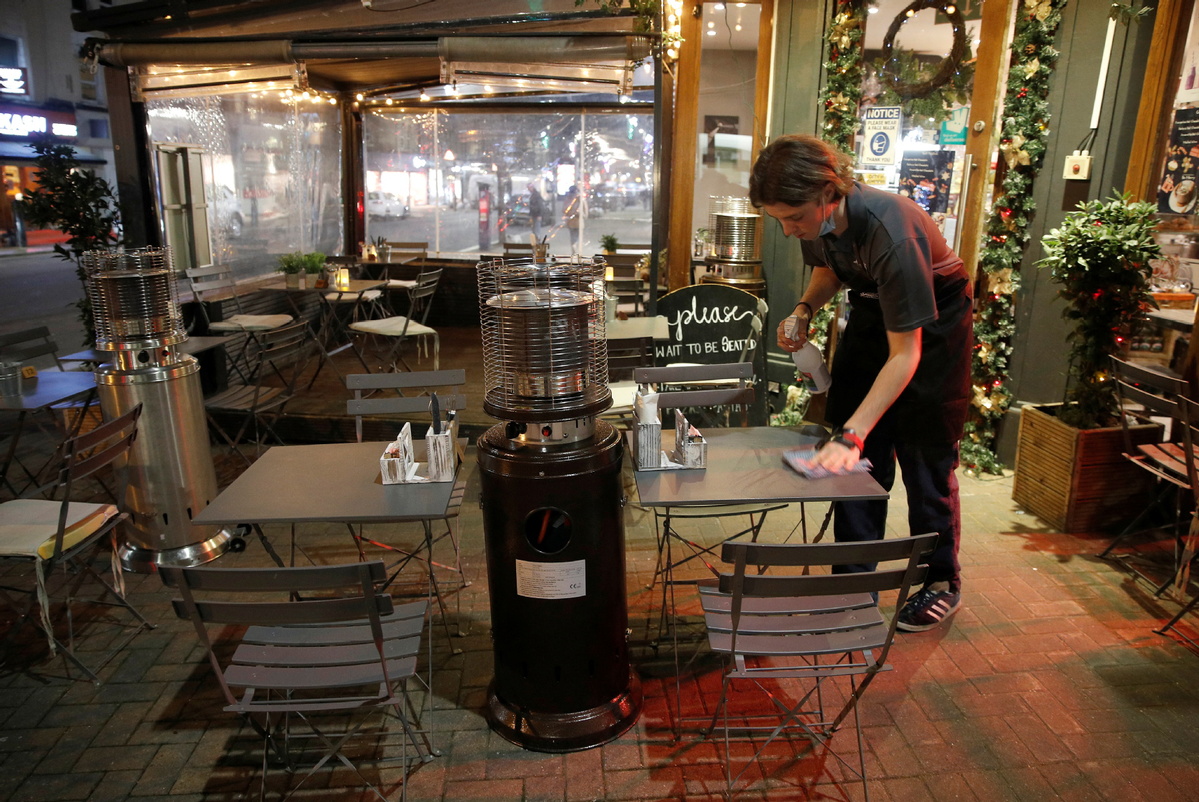Restaurant owners fear tough months
By BO LEUNG in London | China Daily Global | Updated: 2022-01-07 09:32

January and the following months will be a time of great uncertainty for some restaurant owners who fear that rising COVID-19 cases and government measures will keep customers away, China Daily has been told.
In December, as the Omicron variant saw a surge in COVID-19 cases across the United Kingdom, and the government implemented Plan B restrictions in England to stop its spread, many outlets experienced a flurry of cancelations in what is usually one of the busiest times of the year.
Lesley Cox, who owns a charcuterie and cheese bar and restaurant in County Durham, was one of those whose business suffered.
She thinks the measures scared customers away.
"The cancelations were mostly from larger tables, as it was groups of friends coming together," she said. "But we were lucky as we are a small business and were able to take walk-ins to fill some of the gaps."
Despite advance planning and making sure she had enough supplies and staff for the usually busy festive period, she said almost half her bookings canceled on Christmas Eve.
"We are also usually busy up until 11.30 pm each evening with people coming in for just drinks towards the end of the evening, but this never happened and our booked tables were also leaving a lot earlier than normally expected," Cox said.
She expects a quiet January as there have not been many reservations, but she plans to push takeaway orders to cover some of the loss.
"If the government introduced more restrictions without helping the industry out, we are worried we would struggle to give staff the hours they need and they may go elsewhere. That's our biggest worry," she said.
Markus Thesleff, restaurateur and owner of Los Mochis in London's Notting Hill, also had many group booking cancelations over the Christmas period.
However, some did reschedule for January which he said is good news for the business.
"The biggest issue for most restaurants was the constant change and the uncertainty, so it wasn't possible to plan ahead," Thesleff said, adding that lifting lockdown restrictions made sense from an economic point of view, but that the government did not take time to understand the hospitality industry.
He said the pandemic and Brexit coinciding had made the situation worse, with staff shortages and businesses affected by the supply chain crisis.
"I just worry about our business, trying to adapt and continue to inspire our team to perform, and also crafting memories and experiences for our guests," he said.
Thesleff stressed that the industry is absorbing all the costs that it can, but with food and beverage prices going up, as well as rises in staff salary and utility bills, there needs to be more support, such as employment visas for the sector, to ease the pressure.
In December, Chancellor of the Exchequer Rishi Sunak announced one billion pounds ($1.35 billion) in funding to help businesses hit by the rise in COVID-19 cases, including the leisure and hospitality sectors.
























